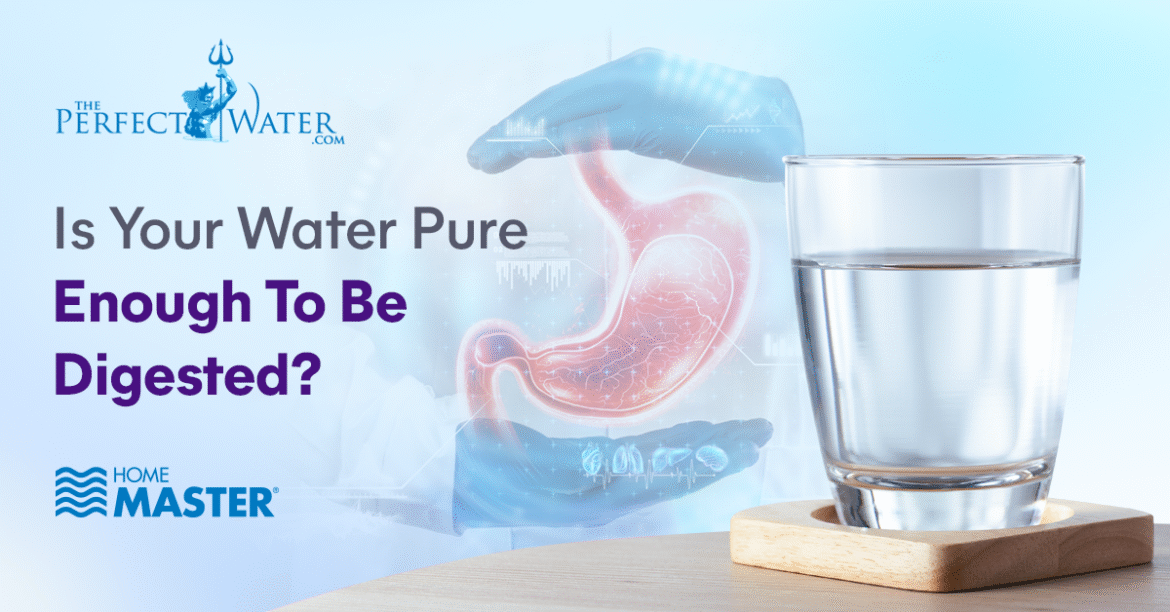When you think of hydration, you probably imagine drinking pure, crystal-clear water. It seems like the healthiest thing you can do, right? Surprisingly, drinking pure water like distilled or deionized water can actually dehydrate you if consumed in excess. That sounds like a paradox, but it’s rooted in real science.
This guide will explain why pure water can dehydrate you, how electrolytes play a vital role in keeping your body hydrated, and the smarter way to balance water and minerals for lasting hydration.
What Is Pure Water and Why It’s Not as Hydrating as You Think
What Makes It Different
Pure water is water that has been stripped of all minerals, ions, and impurities through processes like distillation, deionization, or reverse osmosis (RO). While that might sound healthy, this “purity” also means that it’s completely devoid of essential minerals such as calcium, magnesium, and sodium.
| Type of Water | Description | Contains Minerals | Hydration Effectiveness |
| Distilled Water | Steam-condensed, 100% pure | None | Low |
| Deionized Water | All ions removed | None | Low |
| Tap Water | Treated municipal water | Some | Moderate |
| Mineral Water | Naturally mineral-rich | High | Excellent |
| Spring Water | Naturally filtered | Moderate | Good |
So while pure water looks pristine, it lacks the minerals that help your body absorb and retain fluids. Think of it like a power cable with no current there’s potential, but nothing flowing through it.
The Role of Minerals and Electrolytes in Hydration
Your body doesn’t just need water; it needs electrolytes minerals that conduct electricity and regulate fluid balance. The main electrolytes include:
- Sodium maintains fluid balance and nerve function
- Potassium supports muscle contractions
- Magnesium controls muscle and nerve activity
- Calcium helps with hydration and muscle coordination
Without electrolytes, your body can’t retain water effectively. Pure water, which lacks these minerals, can actually pull electrolytes out of your cells in an attempt to balance concentration levels. The result? You lose essential minerals and end up less hydrated than before.
The Science Behind
Osmosis and Electrolyte Imbalance
To understand why pure water dehydrates you, you need to understand osmosis the process where water moves across cell membranes from areas of low solute concentration to high solute concentration.
When you drink pure water, it enters your bloodstream with no dissolved minerals. Your body fluids, on the other hand, are full of salts and electrolytes. To balance the difference, water rushes into your cells temporarily but because there’s no mineral support, this leads to a temporary swelling of cells followed by a rapid loss of electrolytes as your kidneys flush them out.
Over time, this imbalance can lead to a condition known as cellular dehydration, where your body technically has enough water but can’t use it effectively.
Hyponatremia
One extreme result of overconsuming pure or distilled water is hyponatremia, a dangerous drop in blood sodium levels.
This condition occurs when excess water dilutes the sodium in your bloodstream. Symptoms can include:
- Nausea and headache
- Muscle cramps
- Fatigue or confusion
- In severe cases, seizures or even death
Case Study:
During the 2002 Boston Marathon, several runners developed hyponatremia after drinking large amounts of plain water during the race. Their sodium levels dropped dangerously low, causing severe dehydration symptoms despite drinking plenty of water. Doctors found that water alone wasn’t enough they needed electrolytes to maintain proper balance.
Signs You’re Dehydrated
It’s easy to mistake water intake for hydration. But true hydration depends on how well your body retains and uses that water.
Common Symptoms of Internal Imbalance
Even if you drink several liters of pure water a day, you might still experience:
- Dizziness or fatigue
- Dry mouth and lips
- Muscle weakness or cramps
- Headaches
- Brain fog or confusion
These symptoms often signal electrolyte imbalance, not fluid shortage. Your body can’t properly absorb water without the right balance of minerals.
Why Quantity Isn’t the Same as Quality in Hydration
Drinking more water isn’t always the answer. What matters more is the quality of water and its mineral content.
Your body loses electrolytes constantly through sweat, urine, and even breathing. If you replace only the water but not the minerals, you risk diluting your body’s electrolytes further, leading to fatigue and dehydration.
“Hydration is not just about drinking water; it’s about absorbing and retaining it.” – Dr. Dana Cohen, Hydration Expert and Author of Quench.
How to Rehydrate Properly
Replacing Electrolytes Naturally
You don’t need expensive sports drinks to maintain hydration. You can easily replenish electrolytes naturally with everyday foods and drinks:
| Source | Key Electrolytes | Notes |
| Coconut Water | Potassium, magnesium | Natural isotonic drink |
| Sea Salt (a pinch in water) | Sodium, trace minerals | Boosts fluid retention |
| Citrus Fruits (orange, lemon) | Potassium, vitamin C | Supports absorption |
| Leafy Greens (spinach, kale) | Magnesium, calcium | Strengthens hydration |
| Bone Broth | Sodium, potassium | Ideal for recovery |
DIY Electrolyte Drink Recipe:
- 1 cup of filtered water
- ½ teaspoon sea salt
- 1 tablespoon lemon juice
- 1 teaspoon honey or maple syrup
Mix well and drink post-workout or during heat exposure.
When to Drink Pure Water and When Not To
Pure water isn’t inherently bad. In fact, it can be useful in specific cases like short term detoxes or for use in appliances. However, you should avoid relying solely on pure water for daily hydration, especially in the following situations:
Avoid pure water when:
- You’re exercising or sweating heavily
- You’re recovering from illness
- You live in a hot climate
- You’re fasting or on a low-sodium diet
Safe to drink pure water when:
- It’s mixed with mineral-rich foods
- You occasionally rotate it with mineral or spring water
Myths and Misconceptions About Pure Water
Pure Water Is the Healthiest Option
While it’s free of contaminants, pure water is not the best choice for daily drinking. Without minerals, it can actually strip electrolytes from your system. Studies from the World Health Organization (WHO) show that drinking demineralized water can disrupt mineral balance and even affect heart health over time.
Dehydration Only Comes from Not Drinking Enough
Dehydration isn’t just about water loss. It’s also about mineral depletion. Someone who drinks gallons of distilled water might still experience dehydration symptoms because their electrolyte levels are too low to hold the water inside cells.
Expert Insights and Research Findings
Scientific Studies on Water Purity and Hydration
- A 2005 WHO report on demineralized water found that long-term consumption of pure water can lead to deficiencies in calcium and magnesium, increasing the risk of cardiovascular problems.
(Source: WHO – Nutrients in Drinking Water) - The National Institutes of Health (NIH) emphasizes that electrolyte-rich beverages are more effective at preventing dehydration than plain water, especially after physical activity.
(Source: NIH – Hydration and Electrolyte Balance) - According to Harvard Health, athletes should avoid relying solely on distilled water during endurance sports because it can lead to hyponatremia.
(Source: Harvard Health Publishing)
Key Takeaways
- Pure water lacks minerals, making it less effective for hydration.
- Overconsumption of pure or distilled water can cause electrolyte imbalance.
- Electrolytes sodium, potassium, calcium, and magnesium are crucial for retaining fluids.
- The best hydration strategy is to combine clean water with mineral sources.
| Hydration Type | Contains Electrolytes | Hydration Quality | Ideal Use |
| Pure Water | None | Low | Short-term detox |
| Mineral Water | Yes | High | Everyday drinking |
| Electrolyte Drinks | Yes | Very High | Post-workout |
| Tap Water (filtered) | Moderate | Good | Daily use |
Final Thoughts
Hydration isn’t just about how much water you drink it’s about what’s in your water. Pure water may seem like the ultimate clean choice, but without minerals, it can do more harm than good.
Your body thrives on balance. So instead of drinking only pure water, aim for mineral-rich hydration that restores electrolytes and keeps your energy levels steady. Remember: clean doesn’t always mean complete the secret to hydration lies in minerals, not just water.



